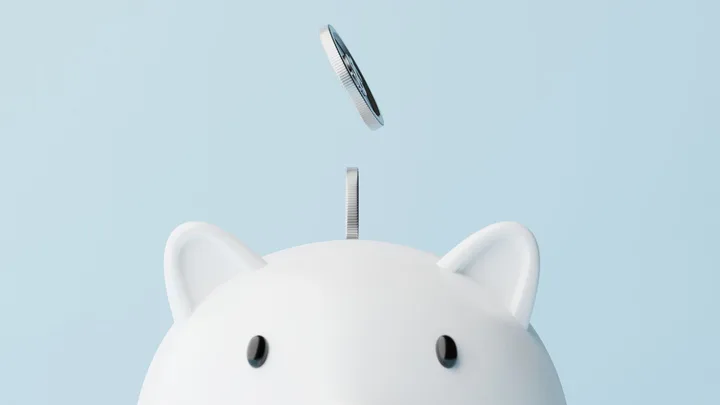We’ve been conditioned to place our worth on things that have nothing to do with who we are.
The way we look, the amount we weigh, our proximity to celebrated standards of beauty, our height, our style, our skin.
Having a fractured sense of self can keep us stuck in cycles of spending money on trying to feel like we’re good enough.

How To Take Back Control Of Your Money
We spend money to feel in control
Spending money is something we can control, so when we feel out of control, we often seek to reclaim our emotions by spending. If we’re feeling bad about ourselves, or we’ve had a bad day, or we’re dealing with an emotion we can’t handle, spending is an easy way to feel like things are happening on our terms.
This is especially potent when we’re feeling like we need to change ourselves, or be like someone else, or fix the myriad problems we believe we have with ourselves— whatever the issue, there’s a solution we can purchase.
This same logic can apply when we try to change our financial situation and are hit with an unexpected barrier. Our financial reality feels out of our control, so we revert to the one thing we can control: spending.
We spend money on who we wish we were
We’ve been sold the idea that confidence, happiness and enjoyment are on the other end of an online order.
When we’re unhappy with who we are, we often have a fantasy self who can drive a lot of our financial decisions, and cause us to transfer meaning onto things in order to satisfy our craving to be someone else.
Spending money on someone we’re not creates a further cycle of disappointment and unmet needs, keeping us rolling the dice for another chance until we find a way to quit believing that the next purchase will be ‘the one’.
We financially self-sabotage
Self-sabotage happens when we act in a way that undermines our own best interests.
We do it with just about everything in life, from relationships to money to health. Self-sabotage can rear its ugly head when we experience something that feels unfamiliar, threatening or uncomfortable.
Not trusting yourself to hold on to money, or feeling shameful about the fact that you’re not a good saver, can cause psychological discomfort when you do try to save.
It’s your financial comfort zone keeping you safe and keeping you doing what you know, so the second you have the opportunity to save some money and change the situation you so badly want out of, you find other ways to deploy that money, either on something specific, or by allowing it to be absorbed by mindless spending.
We rid ourselves of money
One of the toughest things to grasp when it comes to irrational financial behaviour is our tendency to rid ourselves of money.
Consciously, we want to save money. We want to have money, and we want to feel more in control of where our money goes. It sounds totally ridiculous to consider that we’re actually deliberately ridding ourselves of money. But trust me, it’s a thing.
We can rid ourselves of money in all kinds of ways, from being overly generous with friends and family, to spending it on things we don’t really care about that much, to ignoring our finances in order to remove the possibility of our situation being different from what it is now.
Ridding ourselves of money comes back to that lack of trust we have in ourselves to manage our finances.
When we don’t trust ourselves, or feel like we don’t deserve to have money (or the financial confidence it could lead to), or don’t believe ‘people like us’ can have financial stability, it can be far more comfortable to just let go of money./head
We bury our heads in the sand
If you’ve ever ignored your financial situation even though you know it needs attention, I’m right there with you.
Avoidant money behaviours are a coping mechanism for the psychological discomfort that comes up when we think about money.
We can avoid looking at our bank accounts, avoid making financial decisions, put off paying bills until the last minute (or later!) and spend more money than we want or need to even though rationally we know we’d be better off keeping it for other things.
Avoidance is deeply linked to shame. Not only does it create shame, but it also resolves shame, keeping us stuck in a cycle that compounds.
If we feel ashamed at how behind we are with our finances compared to other people we might feel a tension between the need to make some changes and the shame that we risk experiencing if we face the problem. To relieve ourselves of this feeling we avoid it, telling ourselves it’ll all be okay or that we’ll fix it next month.
That then creates more shame when something alerts us to the fact that avoidance is making the problem worse— perhaps a bill arrives, or we glimpse our overdraft when logging into our banking app to transfer money to a friend— and so we avoid some more.
We fixate on past mistakes
We often allow our past mistakes to define us. Getting hung up on the things we wish we’d done differently can cause us to keep repeating the same cycles— we don’t really believe there’s any other alternative, so we live up to the limits we place on ourselves.
When these aspects of our self-worth and identity collide with the financial factory settings that we’ve developed throughout our lives, and our emotional entanglement with money, it makes sense why being Good With Money is a lot more complicated than just crunching numbers.
This is an edited extract from Emma Edwards’ new book, Good With Money (Allen & Unwin, $34.99).

You can buy Good With Money from Booktopia for $22.50.
 Getty
Getty









